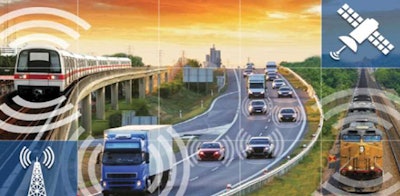
The NTSB’s Most Wanted List of transportation safety improvements for 2017-2018 includes:
- Eliminate distractions
- Reduce fatigue-related accidents
- Prevent loss of control in flight in general aviation
- Improve rail transit safety oversight
- End alcohol and other drug impairment in transportation
- Increase implementation of collision avoidance technologies
- Expand recorder use to enhance safety
- Require medical fitness
- Strengthen occupant protection
- Ensure the safe shipment of hazardous materials
This is the agency’s “wish list” as it has no power to create regulations.
About the use of collision avoidance technologies, NTSB said:
“We recommended that, as soon as possible, (the National Highway Traffic Safety Administration) develop performance standards for collision avoidance systems in commercial vehicles. But companies and commercial vehicle operators shouldn’t wait to be told what to do by regulators; they should install these technologies — at a minimum (Forward Collision Warning Systems) — in all their fleets. In a recent study of motor carriers, the Federal Motor Carrier Administration found some collision avoidance technologies to be beneficial and endorsed (but did not require) their voluntary use.
About expanding the use of recorders, they said:
“Crash-resistant event data and image recorders are readily available, increasingly affordable, and easily installed in vehicles. Regulators should require their use and mandate that companies incorporate the data from these systems into their safety management programs. Additionally, regulators and industry should work to remove barriers for companies seeking to install event recorders and encourage voluntary implementation.”
“Additionally, the Federal Motor Carrier Safety Administration should require all heavy commercial vehicles to be equipped with video event recorders that capture data in connection with the driver and the outside environment, including the roadway, in the event of a crash or sudden deceleration event. The device should create recordings that are easily accessible for review when conducting efficiency testing and system-wide performance monitoring programs.”
About medical fitness, the NTSB said:
“The FMCSA needs to improve its ability to incorporate the latest medical and treatment information into guidelines for its certified medical examiners. For example, although we have found obstructive sleep apnea to be a factor in several of our crash investigations, the FMCSA still lacks a complete screening process for this condition.”







